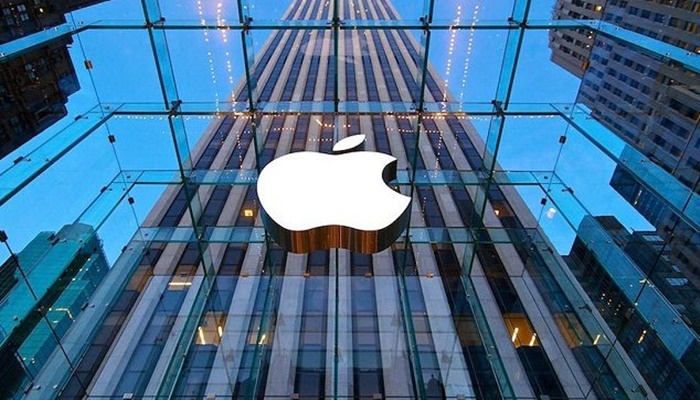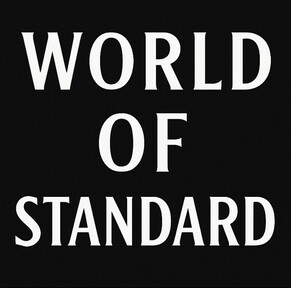Case Study: Relocation of Apple’s Production to Bosnia and Herzegovina – Potential Opportunities
29.04.2025What Would It Look Like If Apple Relocated Part of Its Production to Bosnia and Herzegovina?
In this article, we analyze the potential impact of such a move on trade tariffs, the local labor market, infrastructure investment, and the overall economic development of Bosnia and Herzegovina (BiH). We also compare these projections to the experiences of countries like India and Vietnam, which have already attracted production facilities from global tech giants.
Trade Barriers and Tariffs
Bosnia and Herzegovina has a favorable trade regime that could facilitate the export of goods from a major corporation to key markets. Through the Stabilization and Association Agreement (SAA) with the European Union, BiH has established a free trade area with the EU, meaning that tariffs and quotas have been eliminated in mutual trade. In other words, electronic devices produced in BiH could be exported to the EU duty-free, a major advantage over production in countries outside such agreements.
Simultaneously, BiH has benefited from special trade preferences with the United States. As a participant in the U.S. Generalized System of Preferences (GSP) program, BiH has enjoyed duty-free access for over 3,400 products to the U.S. market. Although the GSP is periodically renewed, this status provides an additional incentive for investors to consider BiH as a manufacturing base for the U.S. market.
It is also important to consider the broader trade context. Unlike production in China, which in recent years has faced high tariffs due to trade tensions with the U.S., production in BiH would not be burdened with such barriers. As part of the European trade space and in the process of EU accession negotiations, BiH promises even smoother access to the European market in the long run. This would allow Apple—or a similar corporation—to operate more stably without the risk of sudden tariff changes. Of course, non-tariff barriers (such as quality standards and regulatory requirements) would still apply, but in that regard, BiH is more aligned with European countries, making it easier to align manufacturing processes with Western market demands.
Impact on the Local Labor Market
The arrival of a tech giant would have a significant impact on BiH’s labor market. Currently, BiH has a relatively well-educated and cost-competitive workforce. The average net salary in BiH is around 1,506 BAM (approx. €770), which is significantly lower than in Western Europe but higher than in typical Asian manufacturing hubs. The unemployment rate, although declining, was around 12.6% in 2024, indicating a sizable pool of available workers. Many of these workers possess strong technical and engineering skills; BiH has traditionally had a quality education system, and its labor force is respected in fields such as engineering and IT.
A major manufacturing investment such as Apple’s would create hundreds or even thousands of new jobs in the short term. This would reduce unemployment and potentially increase average wages due to increased demand for labor and the introduction of higher wage standards and working conditions associated with corporations of this profile. At the same time, challenges would arise. Brain drain has reduced the availability of skilled labor in BiH, as many professionals have left for better-paying jobs abroad. A major investment could partially reverse this trend—by offering competitive salaries and career opportunities, some of these professionals might return home.
However, if the facility required tens of thousands of workers, BiH could face a labor shortage and might need to import workers from neighboring countries or rapidly retrain the domestic workforce. In any case, the overall impact on the labor market would be positive, boosting employment and living standards, though it would require careful planning in education and training to meet the standards of high-tech manufacturing.
Infrastructure Investments
The production of sophisticated devices requires adequate infrastructure—from transportation and logistics to stable energy supply and advanced telecommunications. In BiH, current infrastructure is only partially developed relative to the needs of large industrial facilities. The road and rail networks are undergoing modernization but still lag behind the standards of more developed economies; transportation routes remain underdeveloped for the fast movement of goods.
A major investor like Apple would likely require upgrades—for example, accelerated highway construction, modernization of rail routes to key European corridors, and more efficient customs terminals—to ensure timely export of goods. Given BiH’s limited access to the sea, cooperation with neighboring countries (e.g., using Croatian ports) would be crucial for global distribution.
As for energy infrastructure, BiH currently produces more electricity than it consumes and even exports some, meaning factories would have relatively stable and potentially competitively priced power—an advantage over countries with energy shortages. Nevertheless, investments would likely be needed to build modern energy infrastructure (e.g., transformer stations, renewable energy facilities for “green” production) to meet Apple’s sustainability standards. Additionally, the telecommunications network (internet, 5G) would need to be robust enough to support a highly digitized production facility.
All of this implies that the arrival of a major corporation would trigger a wave of infrastructure investments—partly from the state (or through public-private partnerships) and partly from the investor. In the long run, such investments would benefit not just the company but the entire economy, leaving BiH with improved transportation networks, energy infrastructure, and technological capabilities.
Overall Economic Development of BiH
The economic effects of such a major investment would be wide-ranging and significant. First and foremost, it would represent a large influx of foreign direct investment (FDI). For comparison, total FDI inflow in BiH in 2022 was around $661 million. An Apple-scale investment could match or exceed this figure in a short period, representing a historic jump.
This capital would not only create new jobs but also spill over to local suppliers and the service sector. The electronics supply chain is complex—local companies would have opportunities to supply components, packaging, logistics services, spreading benefits to small and medium-sized enterprises in BiH. The technology and know-how transferred could improve the productivity and quality standards of domestic industry.
Moreover, a significant increase in exports of high-value products (e.g., smartphones) would improve BiH’s trade balance and GDP. For example, India, through Apple’s iPhone production in fiscal year 2024/25, achieved iPhone exports worth about $17.5 billion. While BiH’s economy is smaller, even a few billion dollars in new export revenue would significantly impact GDP growth. Higher employment and wage growth would also boost domestic consumption, further stimulating the economy.
Of course, to realize such a positive scenario, BiH would need to maintain a stable business environment. This includes efficient administration, legal certainty, and political stability—areas where BiH traditionally faces challenges due to its complex governance structure. However, with EU membership on the horizon, reforms and alignment with European standards are expected to improve the investment climate. BiH already offers some incentives to foreign investors, such as free zones with VAT and customs exemptions on equipment and low corporate tax rates (10%, or 8% in Republika Srpska). All these factors, combined with the arrival of a major corporation, could trigger a favorable cycle of accelerated economic development—more investment, more government revenue, and more funds for further growth.
Lessons from India and Vietnam
To better understand what BiH might expect, it’s useful to look at the examples of India and Vietnam—countries that have attracted Apple’s production facilities in recent years. India has become one of the centers of iPhone production thanks to its large labor force, government incentives, and strategic global positioning. Taiwan’s Foxconn (Apple’s main supplier) is building a $2.5 billion campus in India, which will be the second-largest Apple facility outside China and employ about 40,000 people. These investments have transformed local communities—e.g., the area around Bengaluru has seen a real estate boom and population influx due to the "Project Elephant" factory.
India’s case shows that major production attracts ancillary activities, from housing to training centers. The Indian government actively supported these projects through subsidies and tax incentives (the so-called PLI program), making India more attractive than some competitors. As a result, estimates suggest that by 2025, 25–30 million iPhones will be produced in India annually, largely for export to Western markets.
Vietnam offers another relevant example. Over the past few years, Vietnam has emerged as a key link in Apple’s supply chain. Many Apple suppliers (such as Foxconn and Luxshare) have opened factories assembling AirPods, iPads, and Apple Watches. Analysts predict that by 2025, Vietnam will produce about 65% of all Apple AirPods, 20% of iPads and Apple Watches, and 5% of MacBooks. Apple’s presence has directly or indirectly created approximately 200,000 jobs in Vietnam (including within the broader app development ecosystem) and attracted around $16 billion in investments from 2019 to 2024. These investments have improved Vietnam’s technological capacity and cemented its reputation as Asia’s new “manufacturing hub.”
What Can BiH Learn from These Examples?
First, cost competitiveness and incentives are key. India and Vietnam offered attractive conditions (cheap labor, subsidies) to attract Apple. While BiH has a smaller labor market, it can compete through the quality of its workforce and access to wealthy markets (EU). Second, infrastructure and responsiveness are crucial—Vietnam quickly built industrial zones and logistics systems to accommodate investors. BiH would need to respond agilely regarding land, permits, and supporting infrastructure.
Third, broader economic effects are very positive but come with risks: in India, the influx of factories caused a surge in real estate prices and labor shortages, while in Vietnam, increased exports led to greater exposure to global demand cycles. For BiH, integrating into such a global value chain would provide a strong development boost, but it would also require resilience to fluctuations (e.g., demand shifts or tech trends).
Conclusion
The hypothetical relocation of Apple’s production to BiH provides an intriguing look at how a major foreign investment could transform the country’s economic landscape. Complete tariff elimination with the EU and preferential trade with the U.S. would give BiH a competitive advantage. The labor market would experience job growth and likely wage increases, while infrastructure projects—from roads to energy—would gain momentum, bringing long-term benefits.
Cumulatively, the impact on GDP, exports, and technological advancement would be very positive, potentially positioning BiH as a new destination for electronics manufacturing in Europe. Of course, this scenario comes with challenges. BiH would need to continue reforms to ensure a stable and predictable business environment, reduce bureaucracy, and strengthen the rule of law. The experiences of India and Vietnam show that proactive governments that partner with investors and invest in local capacity can gain tremendously from shifts in global supply chains. If these conditions are met, the relocation of large corporations to BiH could be a win-win—offering investors a reliable base in the heart of Europe and propelling Bosnia and Herzegovina toward faster economic growth and technological modernization.
And most importantly: Bosnia and Herzegovina would need to ensure a stable political climate to provide a secure environment for investors such as Apple.
/ / /
"Standard Prva" LLC Bijeljina is a company registered in Bijeljina at the District Commercial Court in Bijeljina. Company’s activities are accountancy, repurchases of receivables, angel investing and other related services. Distressed debt is a part of the Group within which the company repurchases the receivables, which function and are not returned regularly.
Lawyer’s Office Stevanović is the leading lawyer’s office in the region with the seat in Bijeljina. The LO abbreviation represents Lawyer’s Office of Vesna Stevanović and Lawyer’s Office of Miloš Stevanović.
Contact for media press@advokati-stevanovic.com or via telephone 00 387 55 230 000 or 00387 55 22 4444.




